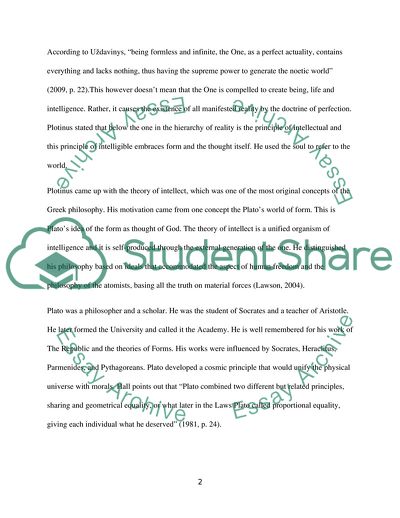Cite this document
(Plotinus Innovative Synthesis of Plato and Aristotle Essay, n.d.)
Plotinus Innovative Synthesis of Plato and Aristotle Essay. https://studentshare.org/philosophy/1835689-discuss-plotinus-innovative-synthesis-of-plato-and-aristotle-is-his-conception-of-the-relation-between-the-one-and-the-world-especially-with-respect-to-the-reality-of-evil-plausible
Plotinus Innovative Synthesis of Plato and Aristotle Essay. https://studentshare.org/philosophy/1835689-discuss-plotinus-innovative-synthesis-of-plato-and-aristotle-is-his-conception-of-the-relation-between-the-one-and-the-world-especially-with-respect-to-the-reality-of-evil-plausible
(Plotinus Innovative Synthesis of Plato and Aristotle Essay)
Plotinus Innovative Synthesis of Plato and Aristotle Essay. https://studentshare.org/philosophy/1835689-discuss-plotinus-innovative-synthesis-of-plato-and-aristotle-is-his-conception-of-the-relation-between-the-one-and-the-world-especially-with-respect-to-the-reality-of-evil-plausible.
Plotinus Innovative Synthesis of Plato and Aristotle Essay. https://studentshare.org/philosophy/1835689-discuss-plotinus-innovative-synthesis-of-plato-and-aristotle-is-his-conception-of-the-relation-between-the-one-and-the-world-especially-with-respect-to-the-reality-of-evil-plausible.
“Plotinus Innovative Synthesis of Plato and Aristotle Essay”. https://studentshare.org/philosophy/1835689-discuss-plotinus-innovative-synthesis-of-plato-and-aristotle-is-his-conception-of-the-relation-between-the-one-and-the-world-especially-with-respect-to-the-reality-of-evil-plausible.


